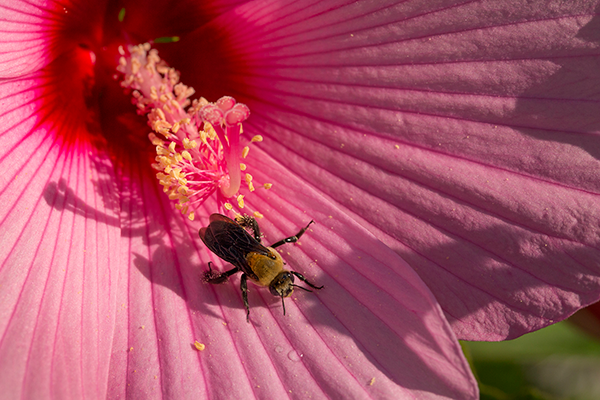The University of Louisiana at Lafayette is the bee’s knees when it comes to providing habitat for pollinators.
UL Lafayette recently became a Bee Campus USA. The Xerces Society for Invertebrate Conservation coordinates the national program. It recognizes colleges and universities for their commitment to providing and improving habitat for pollinators and providing service-learning opportunities for students.
Pollinators, as their name implies, carry the pollen necessary to fertilize plants and produce fruits, seeds, and young plants. They include bees, moths, butterflies and birds.
To earn the Bee Campus USA designation, UL Lafayette enacted a range of programs and initiatives:
- established a committee to advocate for pollinators;
- distributed wildflower seeds to incoming students;
- created student service-learning projects to develop wildflower habitat; and,
- planted urban prairies and bioswales at several locations on campus.
Another key project involves creating an outdoor classroom for learning and research about bees and other pollinators, as well as native grasses and plants, soil quality and storm water runoff erosion management.
The interdisciplinary project coordinated by UL Lafayette’s Ecology Center and its Office of Sustainability began with the planting of native flowers and grasses on 4 acres on each side of Coulee Mine. That work lays the foundation for the planned Cajun Prairie Habitat and Outdoor Classroom for researchers, students and members of the community.
Future plans include creating nesting sites for solitary bees and butterflies and creating educational signage about pollinators on campus.
Learn more about the Bee Campus USA program.
Photo caption: UL Lafayette’s work providing habitat for pollinators such as bees is creating quite a buzz. The University has been designated a Bee Campus USA in recognition of its work planting wildflowers and creating service-learning projects. Photo credit: Doug Dugas / University of Louisiana at Lafayette
